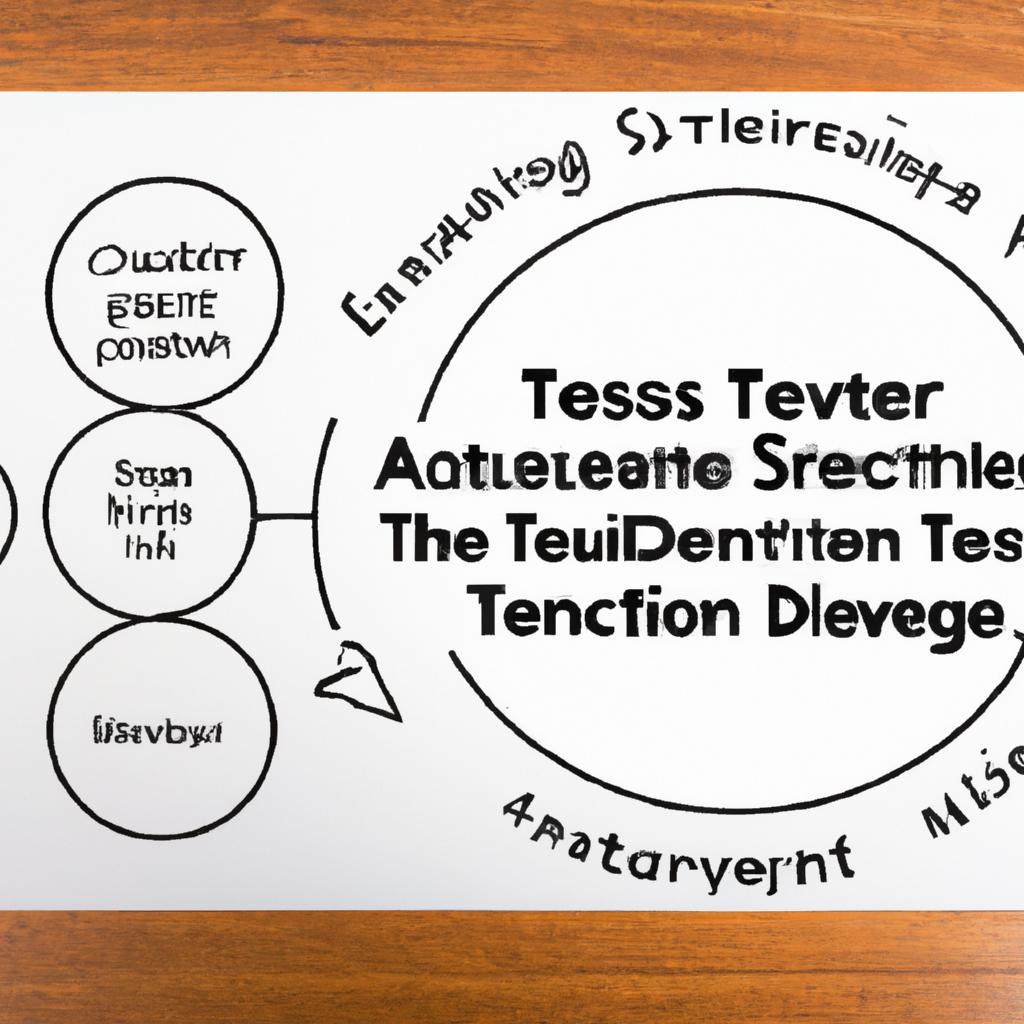In the intricate world of trusts and estates, the role of a successor trustee of an irrevocable trust holds significant importance. As seasoned legal practitioners at Morgan Legal Group in New York City, we understand the complexities involved in navigating the responsibilities and duties of a successor trustee. In this article, we delve into the essential aspects of what it means to be a successor trustee of an irrevocable trust, shedding light on the legal obligations and considerations that come with this esteemed position. Join us as we unravel the intricacies surrounding this pivotal role in the realm of estate planning and administration.
Understanding the Role of a Successor Trustee in an Irrevocable Trust
When it comes to managing an irrevocable trust, the role of a successor trustee is crucial in ensuring that the trust is properly administered according to the wishes of the grantor. A successor trustee is appointed to take over the duties of the original trustee in the event that they are unable or unwilling to continue serving in that capacity. Understanding the responsibilities and powers of a successor trustee is essential for anyone involved in the management of an irrevocable trust.
Key responsibilities of a successor trustee in an irrevocable trust include:
- Asset Management: Managing and investing the assets held in the trust in accordance with the terms of the trust document.
- Communication: Keeping beneficiaries informed about the trust’s administration and addressing any questions or concerns they may have.
- Record Keeping: Maintaining accurate records of all transactions and communications related to the trust.

Key Responsibilities and Duties of a Successor Trustee
The successor trustee of an irrevocable trust plays a crucial role in managing the trust assets and ensuring that the terms of the trust are carried out according to the grantor’s wishes. Some include:
- Asset management: The successor trustee is responsible for managing the assets held in the trust, including investing and distributing them in accordance with the terms of the trust document.
- Record keeping: The successor trustee must maintain accurate records of all trust transactions, including income, expenses, and distributions, to ensure compliance with fiduciary responsibilities and legal requirements.
- Communication: The successor trustee must communicate regularly with trust beneficiaries, providing them with information about the trust and addressing any questions or concerns they may have.
- Legal compliance: The successor trustee must ensure that the trust complies with all relevant laws and regulations, including tax laws and trust administration requirements.
Additionally, the successor trustee is responsible for making decisions in the best interests of the trust beneficiaries and acting impartially in carrying out their duties. It is essential for a successor trustee to have a thorough understanding of trust law and regulations to effectively fulfill their role. At Morgan Legal Group in New York City, our experienced estate planning attorneys can provide guidance and assistance to successor trustees in fulfilling their responsibilities and ensuring the smooth administration of the trust.

Challenges Faced by Successor Trustees and How to Overcome Them
As a successor trustee of an irrevocable trust, you may encounter various challenges along the way. One common issue is understanding the complex legal and financial responsibilities that come with the role. It is crucial to be aware of the duties and obligations that you must fulfill as a trustee to ensure the trust’s assets are managed properly and according to the terms of the trust document.
Another challenge successor trustees often face is dealing with potential conflicts among beneficiaries or family members. Emotions can run high when it comes to matters of inheritance, and it is essential to navigate these sensitive situations with care and diplomacy. Communicating openly and transparently with all parties involved can help prevent misunderstandings and disputes down the line.

Tips for Selecting an Appropriate Successor Trustee for Your Irrevocable Trust
When selecting a successor trustee for your irrevocable trust, it is crucial to choose someone who is reliable, trustworthy, and capable of fulfilling the duties of trustee. The successor trustee will be responsible for managing the trust assets, making distributions to beneficiaries, and ensuring that the terms of the trust are carried out according to your wishes. Here are some tips to help you select an appropriate successor trustee:
- Trustworthiness: Choose someone who has integrity and a track record of honesty and reliability.
- Financial Acumen: Look for someone who is financially savvy and capable of managing investments and assets.
- Communication Skills: Select a successor trustee who is a good communicator and is able to effectively communicate with beneficiaries, advisors, and other parties involved in the trust.
Q&A
Q: What is a successor trustee of an irrevocable trust?
A: A successor trustee of an irrevocable trust is a person or entity designated to take over the responsibilities of managing the trust if the original trustee is unable or unwilling to continue in that role.
Q: What are the responsibilities of a successor trustee?
A: The responsibilities of a successor trustee include managing the assets held in the trust, ensuring that the terms of the trust are carried out according to the grantor’s wishes, and acting in the best interests of the trust beneficiaries.
Q: How is a successor trustee chosen?
A: The successor trustee is typically chosen by the grantor of the trust when the trust is established. It is important to carefully consider who is best suited to take on this role and to ensure that the successor trustee is willing and able to fulfill their duties.
Q: What happens if a successor trustee is unable to fulfill their duties?
A: If a successor trustee is unable to fulfill their duties, a contingency plan should be in place to appoint another successor trustee. This could be outlined in the trust document itself or decided by a court of law.
Q: Can a successor trustee be removed?
A: Yes, a successor trustee can be removed under certain circumstances, such as if they are found to be acting in a manner that is not in the best interests of the trust beneficiaries. This may require court intervention.
Key Takeaways
In conclusion, understanding the role and responsibilities of a successor trustee of an irrevocable trust is essential for ensuring the proper management and distribution of assets according to the grantor’s wishes. By appointing a trustworthy individual or institution as a successor trustee, grantors can have peace of mind knowing that their legacy will be protected and preserved for future generations. With proper planning and communication, a successor trustee can navigate the complexities of trust administration with confidence and integrity. Trusts are valuable tools for estate planning, and having a competent successor trustee in place is key to ensuring the success of the trust for years to come.
 Understanding the role of a successor trustee of an irrevocable trust is critical for beneficiaries. When establishing an irrevocable trust, a trustee is appointed to manage the assets and administer the trust according to the wishes of the grantor. However, in the event of the trustee’s resignation, incapacity, or death, a successor trustee steps in to take over these responsibilities. In this article, we will dive into the details of what a successor trustee is, what their duties entail, and how they can ensure the smooth administration of an irrevocable trust.
Understanding the role of a successor trustee of an irrevocable trust is critical for beneficiaries. When establishing an irrevocable trust, a trustee is appointed to manage the assets and administer the trust according to the wishes of the grantor. However, in the event of the trustee’s resignation, incapacity, or death, a successor trustee steps in to take over these responsibilities. In this article, we will dive into the details of what a successor trustee is, what their duties entail, and how they can ensure the smooth administration of an irrevocable trust.
What is an Irrevocable Trust?
Before delving into the role of a successor trustee, it is essential to first understand what an irrevocable trust is. An irrevocable trust is a legal arrangement in which the grantor transfers assets into a trust that cannot be modified or terminated without the consent of the beneficiaries. This type of trust is commonly used for estate planning purposes as it can help minimize estate taxes and protect assets from creditors.
What is a Successor Trustee?
A successor trustee is an individual or entity designated to take over the role of trustee in an irrevocable trust if the original trustee is no longer able to fulfill their duties. This may happen due to various reasons, such as resignation, incapacity, or death.
Typically, the grantor of an irrevocable trust will appoint a successor trustee when setting up the trust. However, if a successor trustee is not named, the court will appoint one in accordance with state laws. It is crucial for the grantor to carefully consider their choice of successor trustee and ensure that they are capable and trustworthy.
What are the Duties of a Successor Trustee?
The duties of a successor trustee can vary depending on the terms of the trust and state laws. However, some common responsibilities include:
1. Asset Management:
One of the main duties of a successor trustee is to manage the assets held in the trust. This includes making investment decisions, collecting income, and distributing assets to the beneficiaries.
2. Record-Keeping and Reporting:
A successor trustee is required to keep accurate records of all financial transactions and provide regular updates to the beneficiaries. This transparency is crucial in maintaining the trust’s integrity and ensuring the beneficiaries are aware of the trust’s status.
3. Tax Management:
A successor trustee is responsible for filing tax returns for the trust. They must ensure that all taxes are paid and that the trust is in compliance with tax laws.
4. Communication:
A successor trustee must communicate with the beneficiaries regarding the trust’s operations, any changes or amendments, and address any questions or concerns they may have.
5. Fiduciary Duty:
As with any trustee, a successor trustee has a fiduciary duty to act in the best interest of the beneficiaries and manage the trust prudently.
6. Understand the Terms of the Trust:
A successor trustee must thoroughly review the trust document and understand the grantor’s intentions to ensure they are carrying out their duties accordingly.
How to Ensure the Smooth Administration of an Irrevocable Trust as a Successor Trustee
Taking on the role of a successor trustee can be daunting, but there are certain steps you can take to ensure the smooth administration of an irrevocable trust:
1. Know Your Responsibilities:
As a successor trustee, it is crucial to understand your responsibilities and duties. Familiarize yourself with the terms of the trust and seek professional guidance if needed.
2. Communicate Effectively:
Maintaining open and transparent communication with the beneficiaries is key to avoiding misunderstandings and potential conflicts. It is essential to keep them informed of any decisions or changes made to the trust.
3. Keep Accurate Records:
Proper record-keeping is crucial in managing an irrevocable trust. Keep a record of all financial transactions and provide regular updates to the beneficiaries.
4. Seek Professional Guidance:
Managing an irrevocable trust can be complex, and seeking professional guidance from an attorney or financial advisor can help ensure that you are fulfilling your duties correctly.
Benefits of an Irrevocable Trust with a Successor Trustee
There are several benefits to having an irrevocable trust with a successor trustee, such as:
1. Continuity:
By appointing a successor trustee, the trust can continue to exist and operate smoothly in the event of the original trustee’s resignation, incapacity, or death.
2. Protection for Beneficiaries:
Successor trustees have a fiduciary duty to act in the best interest of the beneficiaries, providing them with an added layer of protection for their assets.
3. Avoiding Probate:
Since the assets in an irrevocable trust are not owned by the grantor at the time of their death, they do not go through probate. This can save time, money, and maintain privacy.
In Summary
A successor trustee plays a vital role in the proper administration of an irrevocable trust. They are responsible for managing the assets, keeping accurate records, communicating with beneficiaries, and fulfilling their fiduciary duty. It is crucial for the grantor to carefully consider their choice of successor trustee and ensure they are well-equipped to handle the responsibilities. Seeking professional guidance can also help ensure a smooth administration of the trust. Overall, an irrevocable trust with a successor trustee can provide numerous benefits and peace of mind for the grantor and beneficiaries.

